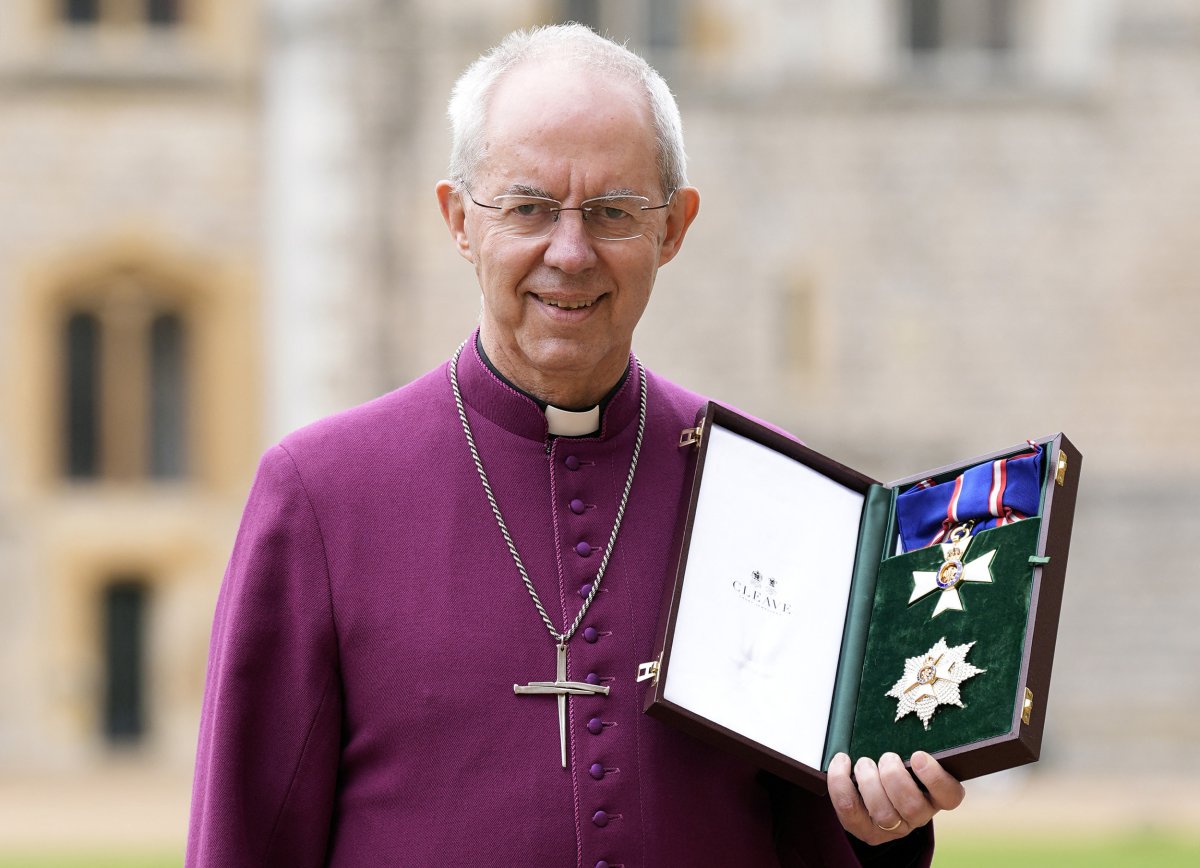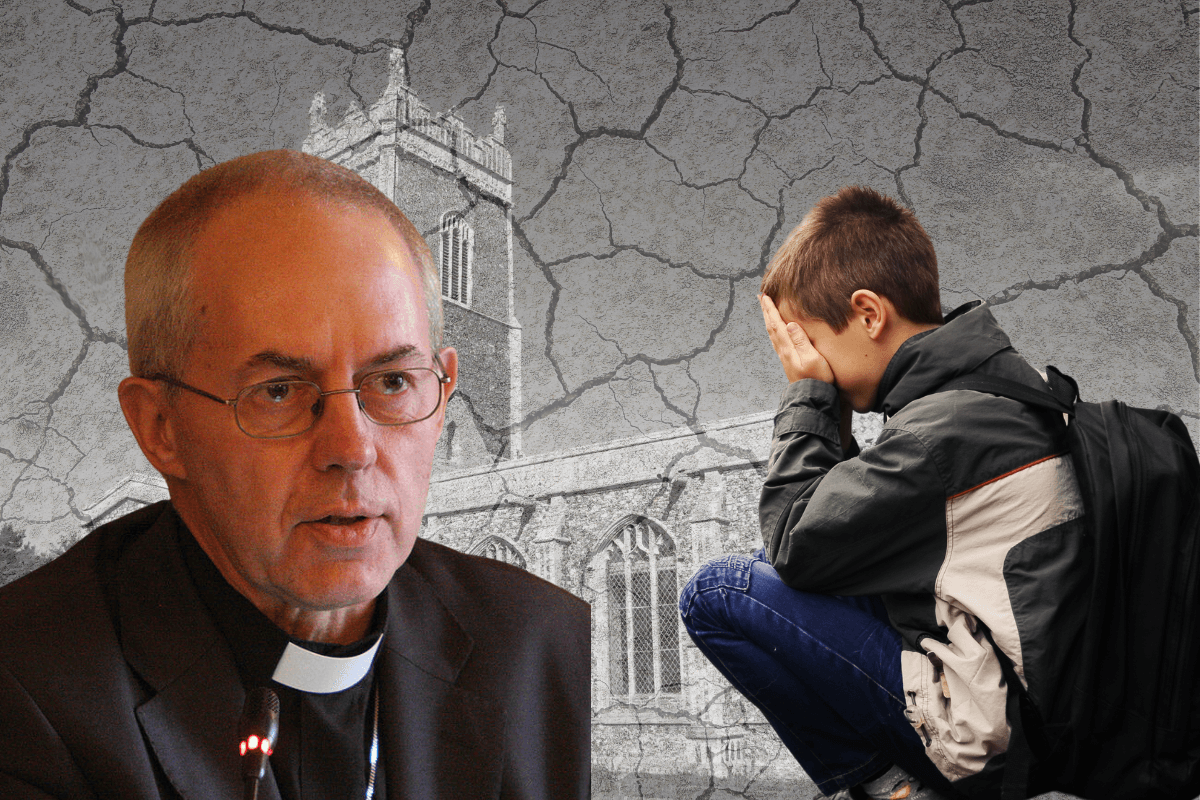Historical Precedent: Why Did Archbishop of Canterbury Justin Welby Resign?

“John Smyth was a child abuser associated with the Church of England.”
UK newspapers focused last week on the archbishop of Canterbury’s decision to resign amid mounting pressure over his handling of one of the worst abuse scandals in the church’s 490-year history.
Justin Welby had resigned hours after British Prime Minister Keir Starmer described the Church of England sex abuse scandal as horrific.
Pressure on Welby had intensified since the publication of a damning report into the Church of England's cover-up of abuse by lawyer John Smyth, the chairman of a charity that runs holiday camps with the Church of England, in the UK and Africa.
Members of the National Assembly of the Church of England subsequently launched a petition calling on Welby to step down because he had lost the confidence of his church, but the strongest angry reactions came from Smyth's victims.
Welby's resignation is not just the end of his career, but a turning point in the history of this prestigious position that has faced unprecedented challenges for several years.
On the other hand, Reuters said that whoever succeeds Welby will face challenges including uniting the increasingly divided Anglican churches and working to improve church attendance rates that have declined by 20% since 2019.
Historic Resignation
In a shocking drama, the Church of England witnessed an earthquake at the head of its leadership with the Archbishop of Canterbury Justin Welby announcing his sudden resignation.
Welby, the spiritual leader of 85 million Anglicans around the world, had been under a lot of pressure to resign due to a sex abuse scandal that occurred in the church and was revealed in 2013, but he ignored it and did not conduct an investigation until the scandal resurfaced strongly a few days ago.
Last week, a report concluded that barrister John Smyth had sexually abused and tortured more than 130 boys and young people at Christian summer camps in the UK and Africa over five decades.
Smyth was an evangelical barrister who held leadership roles in a charity called the Iwerne Trust, which ran Christian camps in England and Wales.
Smyth, believed to be the most prolific serial abuser linked to the church, died in Cape Town in 2018 at the age of 75 without ever being prosecuted.
The case only came to light after a Channel 4 documentary aired in 2017.
The report, by the Church of England’s National Safeguarding Team, found that Smyth’s abhorrent abuse could have been uncovered earlier if the Archbishop of Canterbury had contacted the relevant authorities, knowing that he was aware of it.
It also suggested that Smyth was able to move from England to Africa while church officials were aware of the abuse and failed to take steps to prevent further abuse.
Welby insisted after the report was published that he had no idea or suspicion of the incident before 2013, but admitted that he personally failed to ensure that the terrible tragedy was the subject of a thorough investigation after that date.
Despite Welby’s apology, three members of the General Synod (the elected body responsible for deciding matters of faith in the Church of England) launched a petition last weekend calling for his resignation.
Welby, 68, formally announced his resignation on November 12, saying in a letter: “It is very clear that I have to accept personal and institutional responsibility for this long and appalling period.”
“I believe that stepping down is in the best interests of the Church of England, which I love dearly and which I have had the honour of serving,” he added.

Church Scandal
In response to Welby's resignation, the Daily Express reported on Justin Welby's deep sense of shame at what it called his failure to bring a child abuser to justice.
The Daily Mail, which dedicated its front page to a church in crisis, said Welby Welby could lose his seat in the House of Lords.
The Telegraph reported that victims have called on other clergy to resign over their alleged failure to act on the sex abuse crisis.
In turn, the Archbishop of York Stephen Cottrell, the church's second-ranking cleric, called Welby’s resignation the right and honorable thing to do.
Bishop of Birkenhead Julie Conalty said Justin Welby had done the right thing by resigning as archbishop of Canterbury.
She told BBC Radio 4’s Today programme: “Just the archbishop of Canterbury resigning is not going to solve the problem. This is about institutional changes, our culture and a systemic failure so there must be more that we need to do. Very possibly some of the people should go.”
Health Secretary Wes Streeting, an Anglican, said it was right that Welby had taken responsibility for the C of E’s failures on abuse.
But, in a warning to other church leaders, he told the BBC: “Don’t think one head rolling solves the problem.”
In a related context, survivors have said that other senior clergy who failed to take effective action when told of Smyth’s abuse should also resign.
Mark Stibbe, a former vicar and survivor of abuse, said senior church figures should step down.
According to Reuters, Martyn Snow, the bishop of Leicester, Graham Usher, the bishop of Norwich, and Guli Francis-Dehqani, the bishop of Chelmsford, have all been tipped to succeed r Welby and become the 106th archbishop of Canterbury.

Religious Leader
The Archbishop of Canterbury is the head of the Church of England and is traditionally seen as the spiritual leader of the Anglican Communion.
King Henry VIII is considered the founder of the Church of England after he broke ties with the pope in the 1530s and declared himself the Supreme Head of the Church of England.
Like the Catholic Church, the Church of England has faced a long series of allegations that priests and others affiliated used their positions to abuse young men and women.
An independent inquiry established by the government found that 390 people associated with the church were convicted of child sexual abuse between the 1940s and 2018.
Deference to the authority of priests, taboos surrounding the discussion of sexuality and a culture that gave more support to alleged perpetrators than their victims helped make the Church of England a place where abusers could hide, the inquiry found.

In modern times, the Anglican Church faces major challenges including declining participation in church life, rising secularism and a changing view of British society of religion as a major factor in daily life.
The Church of England, along with the rest of organized Christianity, has lost its hold over the minds of millions in Britain.
According to the 2021 official census, for the first time in history, fewer than half of the population of England and Wales now describe themselves as Christian.
Sources
- Who is Archbishop of Canterbury Justin Welby and why did he resign during an abuse scandal?
- Archbishop Welby resigns over abuse scandal: Church of England in crisis
- Bishop says more C of E senior clergy may need to resign over abuse scandal
- ‘Church in crisis’: what the papers say about the archbishop of Canterbury’s resignation











